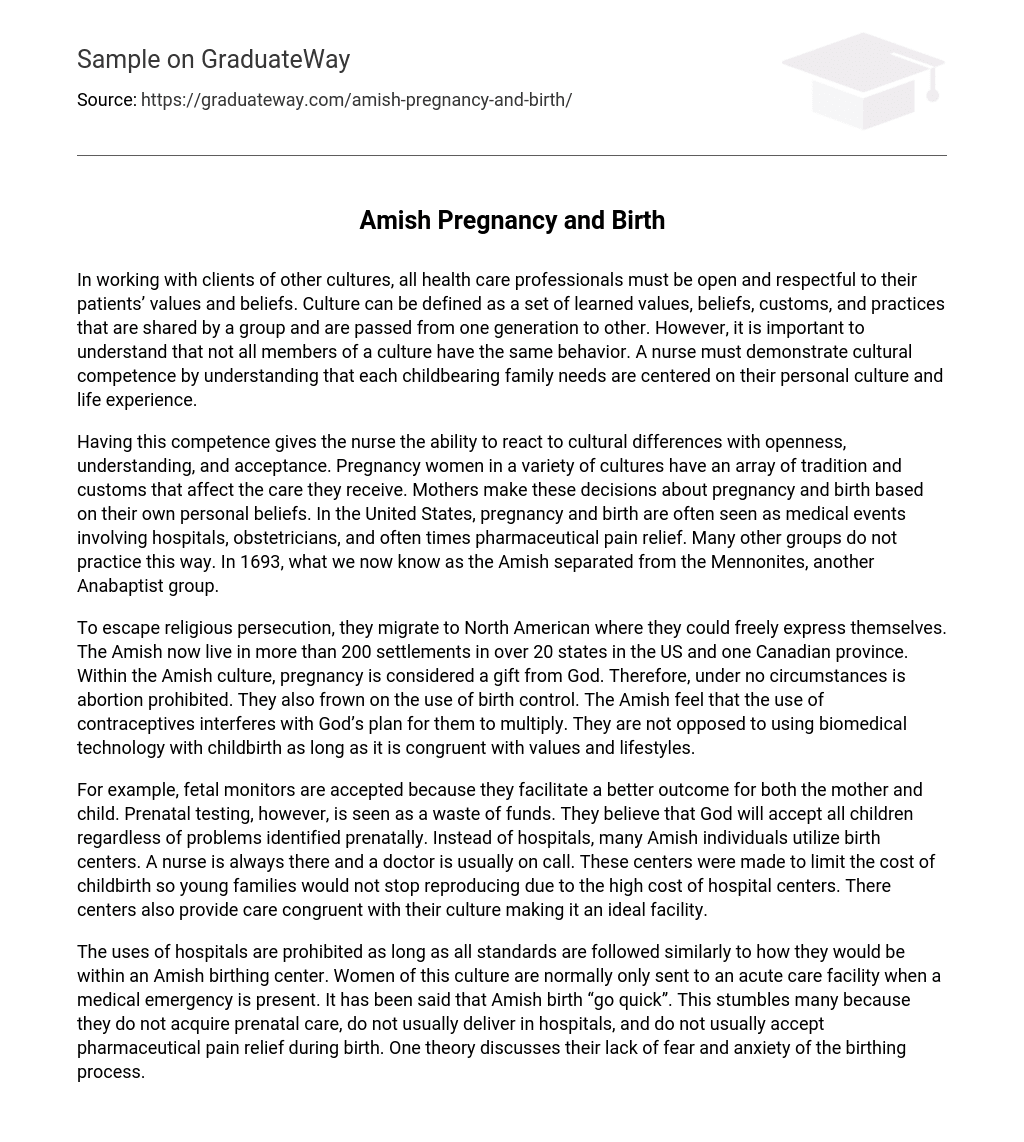Healthcare professionals must approach patients from different cultures with openness and respect for their values and beliefs. Culture encompasses a group’s collective knowledge, including customs, practices, values, and beliefs that are passed down through generations. It is crucial to acknowledge that individuals within a culture may exhibit varying behaviors. Nurses should demonstrate cultural competence by recognizing how each family’s childbirth needs are influenced by their distinct cultural background and life experiences.
Nurses who possess this skill can effectively address cultural differences by being receptive, empathetic, and inclusive. The care bestowed upon expectant mothers is influenced by diverse customs and traditions prevalent in various cultures. These women make decisions regarding their pregnancy and delivery based on their individual beliefs. In the United States, pregnancy and childbirth are commonly perceived as medical occasions involving hospitals, obstetricians, and frequent use of pharmaceutical pain relief. Nevertheless, there exist numerous alternative groups that diverge from these practices. In 1693, the Amish community separated from the Mennonites—a distinct Anabaptist faction.
The Amish migrated to North America to escape religious persecution and freely express their beliefs. They currently reside in over 200 settlements spanning across 20 US states and one Canadian province. Pregnancy holds great significance within their culture, being regarded as a sacred blessing, thus rendering abortion strictly forbidden. Additionally, the Amish harbor reservations regarding the use of birth control as they perceive it to contradict God’s intended purpose for reproduction among them. Nonetheless, they are open to incorporating biomedical technology during childbirth, provided it aligns with their principles and way of life.
Fetal monitors are seen as beneficial for both the mother and child, as they improve outcomes. However, prenatal testing is viewed as unnecessary and a misuse of funds. The belief is that God will accept all children, regardless of any prenatal issues identified. Instead of hospitals, the Amish community often opts for birth centers. These centers have nurses available at all times and a doctor is usually on call. The purpose of these centers is to lower the cost of childbirth, allowing young families to continue expanding their families without financial burden. Additionally, these centers align with Amish cultural beliefs and practices, making them an ideal choice for healthcare.
The utilization of hospitals is not allowed unless all regulations are adhered to, in a manner similar to an Amish birthing center. Women from this community typically only go to an acute care facility in the presence of a medical emergency. The speed at which Amish births occur often surprises many due to their lack of prenatal care, preference for non-hospital deliveries, and refusal of pharmaceutical pain relief. One hypothesis suggests that their lack of fear and anxiety towards the birthing process plays a role.





